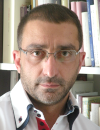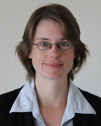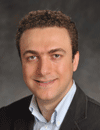Nancy Allbritton, Frank and Julie Jungers Dean of the College of Engineering and Professor of BioengineeringNancy L. Allbritton is the Frank and Julie Jungers Dean of the College of Engineering and Professor of Bioengineering at the University of Washington in Seattle.
Her research focuses on the development of novel technologies for applications in single-cell analysis, micro-arrays and fluidics, and organ-on-chip and has resulted in over 180 full-length journal publications and patents and led to 15 commercial products. Her research program has been well funded by the National Institutes of Health with $60 million in grant funding since 1994. Four companies have been formed based on her research discoveries: Protein Simple (acquired by Bio-Techne in 2014 for $308M), Intellego (subsequently integrated into International Rectifier), Cell Microsystems (www.cellmicrosystems.com), and Altis Biosystems (www.altisbiosystems.com). Dr. Allbritton is a Fellow of the American Association for the Advancement of Science, the American Institute for Medical & Biological Engineering, and the National Academy of Inventors. She obtained her B.S. in physics from Louisiana State University, M.D. from Johns Hopkins University, and Ph.D. in Medical Physics/Medical Engineering from the Massachusetts Institute of Technology, with a postdoctoral fellowship at Stanford University. |  | | | Alberto Escarpa, Full Professor of Analytical ChemistryDr. Alberto Escarpa is Full Professor of Analytical Chemistry at the University of Alcalá since 2017. He has received several awards such the prestigious NATO post-doctoral Scholarship as postdoc researcher at the New Mexico State University (USA) in 2001 or the "Young Investigator Award" by the University of Alcala in 2003. He is the leader and founder of the group “Analytical Miniaturization and Nanotechnology” since 2003. His research activity is focused on microfluidics, biosensing, nanomaterials and micro motors.
He has co-authored more than 130 peer-reviewed articles in international journals, yielding an h-index of 38, is the coeditor and coauthor of the several books “Miniaturization of analytical systems: principles, designs and applications” (Wiley, 2009), “Food Electroanalysis” (2015, Wiley) and Carbon-based Nanomaterials in Analytical Chemistry (RSC, 2018). He has given more than 30 invited talks in highly international meetings about microfluidics and miniaturization of analytical chemistry. He is also Associate Editor of Microchimica Acta, RSC Advances and Electrophoresis and member of the Editorial board of Electrophoresis, Food Chemistry, Applied Materials Today, Microchimica Acta and Sensors.
He is also member of Royal Society of Chemistry since 2016. |  | | | Ute Neugebauer, Group LeaderUte Neugebauer studied chemistry in Jena, Germany, and Chapel Hill, North Carolina, USA. After her PhD she joined the Biomedical Diagnostics Institute, Dublin, Ireland, to develop intracellular spectroscopic sensors. Since 2011 she is group leader at the Center for Sepsis Control and Care, Jena University Hospital, and the Leibniz Institute of Photonic Technology, Jena. Ute Neugebauer is leader of the Core Unit Biophotonics and she accepted a position as a Professor at the University of Jena. Her research is concerned with the development of innovative spectroscopic methods for biomedical research and diagnostics. She is one of the leading scientists in the field of spectroscopic characterization of drug-target-interactions and spectroscopic detection of antibiotic resistances. |  | | | Aydogan Ozcan, Chancellor's ProfessorDr. Aydogan Ozcan received his Ph.D. degree at Stanford University Electrical Engineering Department. After a short post-doctoral fellowship at Stanford University, he was appointed as a research faculty at Harvard Medical School, Wellman Center for Photomedicine in 2006. Dr. Ozcan joined UCLA in 2007 and he is currently the Chancellor’s Professor at UCLA and an HHMI Professor with the Howard Hughes Medical Institute, leading the Bio- and Nano-Photonics Laboratory at UCLA Electrical Engineering and Bioengineering Departments, and is also the Associate Director of the California NanoSystems Institute (CNSI) at UCLA. Dr. Ozcan holds 36 issued patents and more than 20 pending patent applications for his inventions in telemedicine, mobile health, nanoscopy, wide-field imaging, lensless imaging, nonlinear optics, fiber optics, and optical coherence tomography. Dr. Ozcan gave more than 40 plenary/keynote talks and 300+ invited talks and is also the author of one book, the co-author of more than 500 peer reviewed publications in major scientific journals and conferences. In addition, Dr. Ozcan is the founder and a member of the Board of Directors of Holomic/Cellmic LLC, which was named a Technology Pioneer by The World Economic Forum in 2015. Dr. Ozcan is also the Founder of Lucendi Inc. Prof. Ozcan received several major awards including the 2011 Presidential Early Career Award for Scientists and Engineers (PECASE), which is the highest honor bestowed by the United States government on science and engineering professionals in the early stages of their independent research careers. Dr. Ozcan received this prestigious award for developing innovative optical technologies and signal processing approaches that have the potential to make a significant impact in biological science and medicine; addressing public health needs in less developed countries; and service to the optical science community including mentoring and support for underserved minority undergraduate and graduate students. Dr. Ozcan also received the 2015 UCLA Postdoctoral Scholars Mentoring Award for his commitment to training and mentoring of postdoctoral researchers. In addition, Dr. Ozcan received the inaugural Rahmi M. Koc Science Medal, the International Commission for Optics (ICO) Prize, the inaugural SPIE BioPhotonics Technology Innovator Award, the Army Research Office (ARO) Young Investigator Award, SPIE Early Career Achievement Award, NSF CAREER Award, NIH Director’s New Innovator Award, the Office of Naval Research (ONR) Young Investigator Award, the IEEE Photonics Society Young Investigator Award and the MIT’s Technology Review TR35 Award for his seminal contributions to near-field and on-chip imaging, and telemedicine based diagnostics. Prof. Ozcan is also the recipient of the 2016 IEEE Photonics Society Distinguished Lecturer Award, 2013 and 2015 Microscopy Today Innovation Awards, 2012 Popular Science Brilliant 10 Award, 2012 National Academy of Engineering (NAE) The Grainger Foundation Frontiers of Engineering Award, 2011 Innovators Challenge Award presented by the Rockefeller Foundation and mHealth Alliance, the 2010 National Geographic Emerging Explorer Award, the 2010 Bill & Melinda Gates Foundation Grand Challenges Award, the 2010 Popular Mechanics Breakthrough Award, the 2010 Netexplorateur Award given by the Netexplorateur Observatory & Forum in France, the 2010 PopTech Science and Public Leaders Fellowship, the 2009 and 2016 Wireless Innovation Award organized by the Vodafone Americas Foundation as well as the 2008 Okawa Foundation Award, given by the Okawa Foundation in Japan. Prof. Ozcan was selected as one of the top 10 innovators by the U.S. Department of State, USAID, NASA, and NIKE as part of the LAUNCH: Health Forum organized in 2010. He also received the 2012 World Technology Award on Health and Medicine, which is presented by the World Technology Network in association with TIME, CNN, AAAS, Science, Technology Review, Fortune, Kurzweil and |  | | |
|
